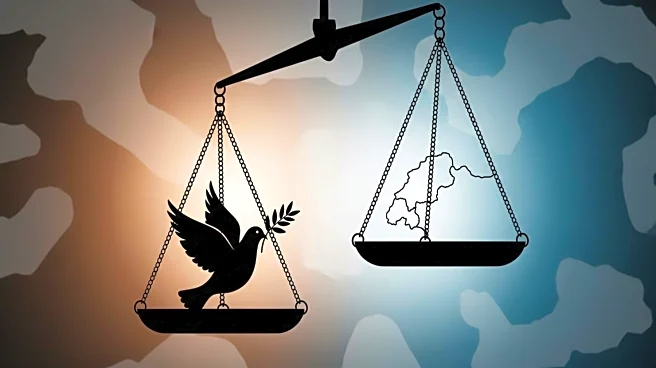What is the story about?
What's Happening?
The European Commission has unveiled plans to restrict trade with Israel and impose sanctions on extremist ministers in response to the Gaza conflict. The proposal includes suspending trade-related provisions of the EU-Israel Association Agreement, which would strip Israeli goods of privileged access to European markets. The measures face challenges in securing support from EU member states, with Germany and Italy expressing reluctance to impose penalties on Israel. The EU remains committed to humanitarian aid and the two-state solution, emphasizing the need for Israel to address humanitarian issues in Gaza.
Why It's Important?
The EU's proposal to restrict trade with Israel represents a significant diplomatic move, highlighting the international community's concern over the humanitarian crisis in Gaza. If implemented, the trade curbs could impact Israel's economy, as the EU is its largest trading partner. The sanctions reflect the EU's stance on human rights and democratic principles, emphasizing the need for Israel to change its approach to the conflict and engage in peace negotiations. The proposal underscores the growing pressure on Israel to address humanitarian issues and improve conditions in Gaza. The outcome of this proposal could influence future EU-Israel relations and impact broader geopolitical dynamics.
What's Next?
The proposal's success depends on securing a qualified majority of EU member states, which remains uncertain due to opposition from key allies like Germany and Italy. If approved, the trade curbs could lead to economic repercussions for Israel and affect its diplomatic relations with the EU. The international community may continue to pressure Israel to change its approach to the Gaza conflict and engage in peace talks. The reaction of Israeli leaders and their response to the EU's measures will be crucial in determining the conflict's trajectory. Continued diplomatic efforts and negotiations will be necessary to address humanitarian concerns and promote stability.















